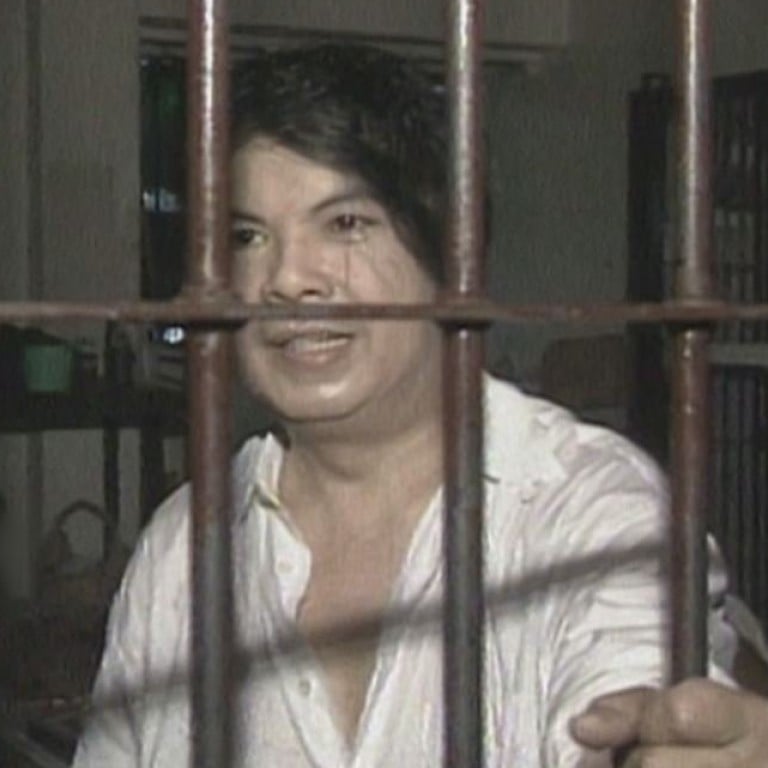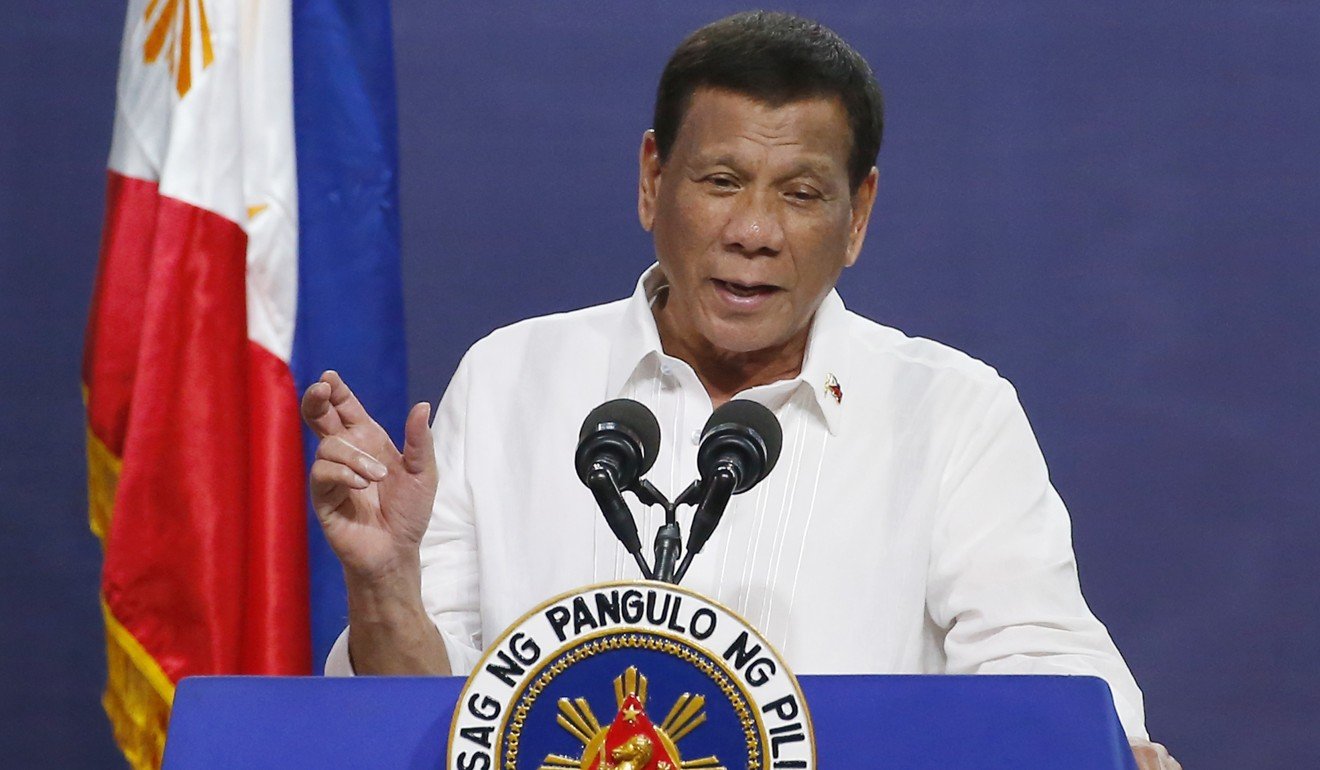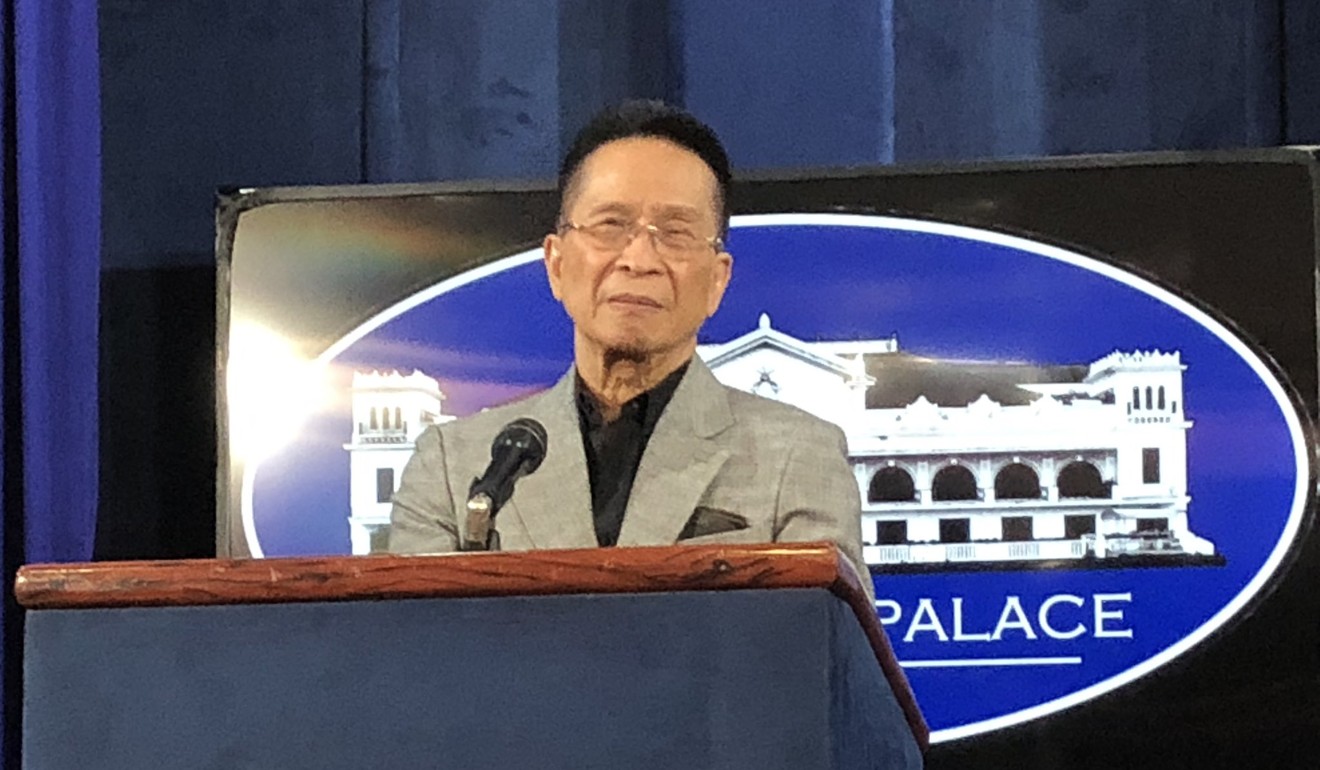
Philippines hits pause on early release for ex-mayor Antonio Sanchez serving 360 years in jail amid outrage
- Sanchez was set to have been freed on August 20, his family said, after serving 24 years of a 360-year sentence for rape and multiple murders
- But public outrage has forced authorities to keep him behind bars, while they review the release of about 11,000 prisoners for good behaviour
Allan Antonio Sanchez, the oldest son of the former Calauan mayor, told the Philippine Daily Inquirer his 73-year-old father had even been fingerprinted ahead of his release. However, the ferocity of the public backlash against his early release made officials reconsider.
Justice secretary Menardo Guevarra set events in motion last week when he said the new Good Conduct Time Allowance (GCTA) law, passed in 2013, would apply to all convicts, regardless of how high-profile their crime.
Ex-mayor serving 360 years in jail for rape may walk free
It appeared Sanchez would be among 11,000 inmates freed under the law offering greater incentives for prisoners’ good conduct, applied retroactively in accordance with a Supreme Court decision. Now, though, its application has been put on hold.
On Monday, Senator Christopher “Bong” Go, a former close aide of Duterte, said the president had told Guevarra and Bureau of Corrections director Nicanor Faeldon that Sanchez was not to be released. On Tuesday, Guevarra said Faeldon had denied signing the release papers for Sanchez.

Referring to the presidential palace, he said: “The request that I received from Malacañang was to hold the processing of mayor Sanchez’s case until all the factual and legal issues have been fully thrashed out.”
In June 1993, Sanchez raped Eileen Sarmenta, a college student kidnapped by his men and presented to him as a “gift”. Six of his men then took turns raping Sarmenta before killing her. They also murdered a male student when kidnapping her.
In 1995, after a sensational trial, Sanchez and his men all received seven “life sentences”.
In a subsequent, separate trial Sanchez received an additional two life sentences for murdering two political rivals. Under Philippine law, though, no criminal serves more than 40 years behind bars, regardless of the length of their sentences.
Sanchez’s lawyer was Salvador Panelo, currently Duterte’s spokesperson.

Criminal law professor and human rights activist Barry Gutierrez said the mixed messages indicated Guevarra could be trying to uphold the rule of law and help spare the government embarrassment.
“First of all, it’s not up to the president to keep Sanchez in jail; there are a clear set of rules for granting GCTAs and the president has no role in the process and cannot ignore the law at his discretion,” he said. “Guevarra wants to correct the impression that the president is ignoring or violating the law.”
Gutierrez speculated Guevarra drew attention to Sanchez’s release in the first place out of “genuine personal concern about its propriety” and to “prevent the possible fallout for himself and the administration if a notorious rapist-murderer was released under their watch”.
Sanchez, for his part, maintains his innocence on all charges.
While in jail, drugs have been found in his cell, at one time stashed inside a statue of the Virgin Mary. He has also reportedly been seen outside prison – he claimed to be attending hospital.
The moneyed and connected can always find ways to circumvent the law
On Tuesday, Sanchez told GMA News Online he had already received release papers and was “no longer getting food [from prison]”, indicating the facility no longer considered him an inmate.
The GCTA law was intended to ease pressure on the Philippines’ overcrowded prisons but uncertainty now surrounds its implementation.
Dr Raymund Narag, a criminologist who was wrongfully jailed for allegedly causing the death of another man, posted on Facebook: “What is missing in all the discussions is the efforts of nameless offenders given long-term sentences and defendants caught in the lengthy trial processes who are simply trying to reform themselves.”
Duterte blasts Iceland over abortion, hopes it will ‘freeze in time’
Sanchez would have been scheduled for release in 2035, and Gutierrez was surprised he was considered for early release.
“Given his notoriety and previous violations while incarcerated, I highly doubt he would have even been considered for early release unless he had some serious connections and money,” he said.
“[The Sanchez case] highlights the brutal truth that the moneyed and connected can always find ways to circumvent the law, while the poor have to endure the system in all its harshness.”

